Precision and personalized medicine is an innovative approach to healthcare that allows doctors to tailor medical treatment to individual patients’ conditions. Yet, despite its promise and multimillion-dollar federal initiatives, precision medicine has been slow to develop and implement in standard clinical care. Over a four-part webinar series, we’ll bring together experts to discuss how we can move precision medicine from theory to practice.
Part 1: Leveraging Precision Medicine to Meet Patient Needs
Precision medicine promises to reduce adverse side effects and time-consuming trial and error processes, but many patients do not know what it is and providers struggle to leverage it effectively. Join Arlene S. Bierman, director of the Center for Evidence and Practice Improvement at the Agency for Healthcare Research and Quality, in discussion with Wenora Johnson, three-time cancer survivor and patient advocate, Rhoda Au, an expert on brain health, and Pavan Bhargava, an expert on multiple sclerosis, who will discuss how precision medicine can better address patients’ needs.
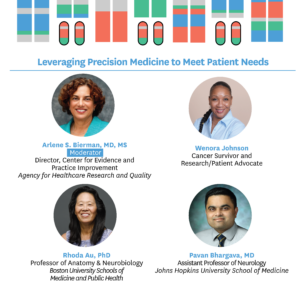
Part 2: Measuring Real-World Effectiveness and Value
Precision therapies are often approved based on small trials, in specialized settings and use biomarkers as endpoints. Thus, despite their potentially high cost, the evidence of value is lacking which makes real-world evidence crucial. Join Darius Lakdawalla, director of research at the Schaeffer Center, in discussion with Kay Larholt, director of research at MIT NEWDIGS, and Megan O’Brien, executive director of the Center for Observational and Real World Evidence at Merck, for a webinar about how we should measure and leverage real-world data to assess the value of precision medicines.
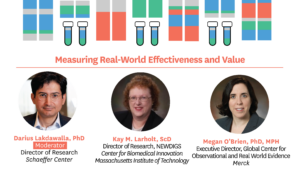
Part 3: Using Precision Medicine in Clinical Practice
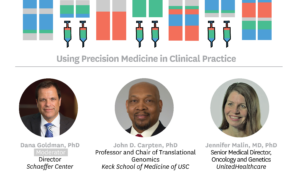
Part 4: Developing Effective Payment and Reimbursement Models

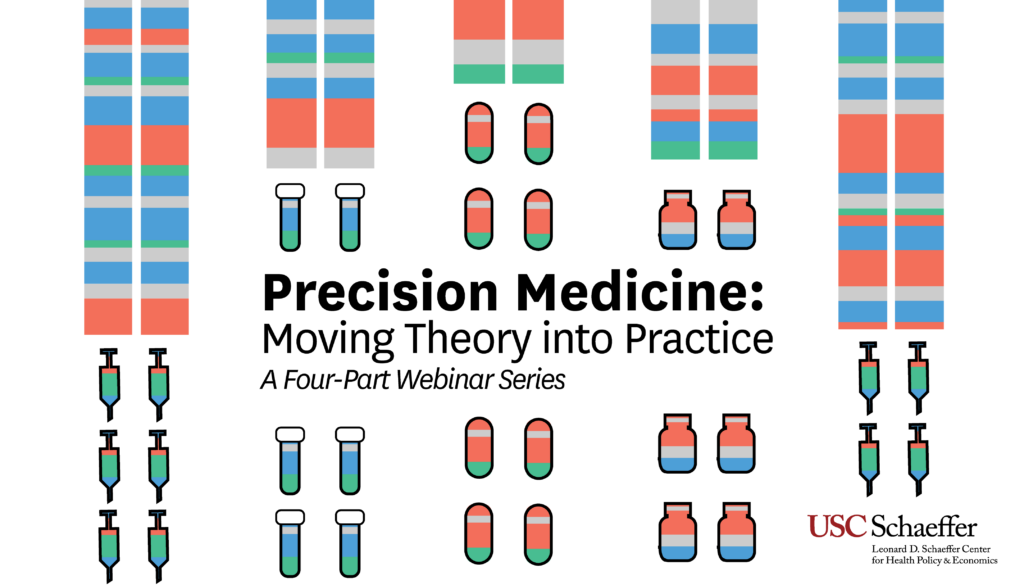
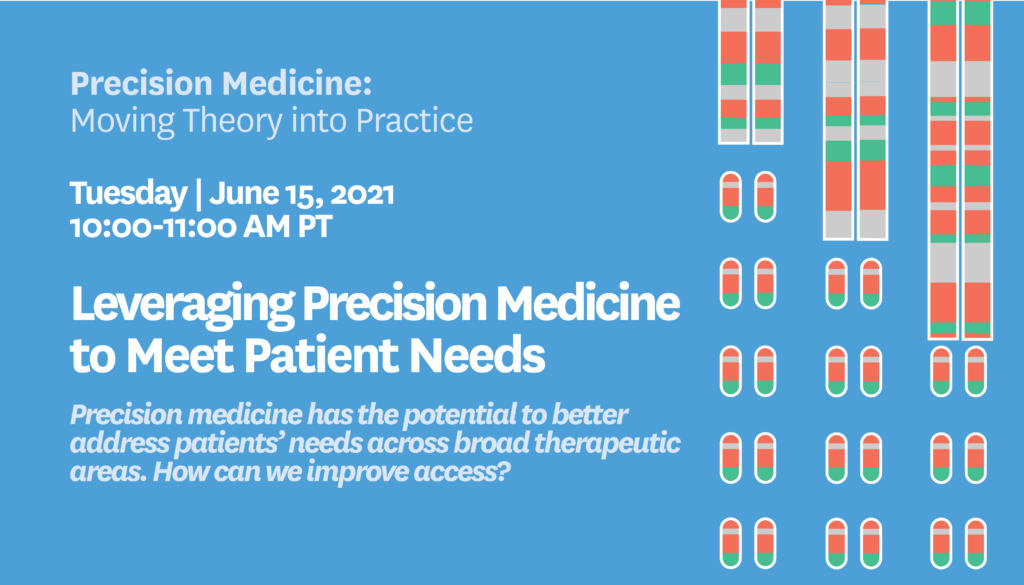
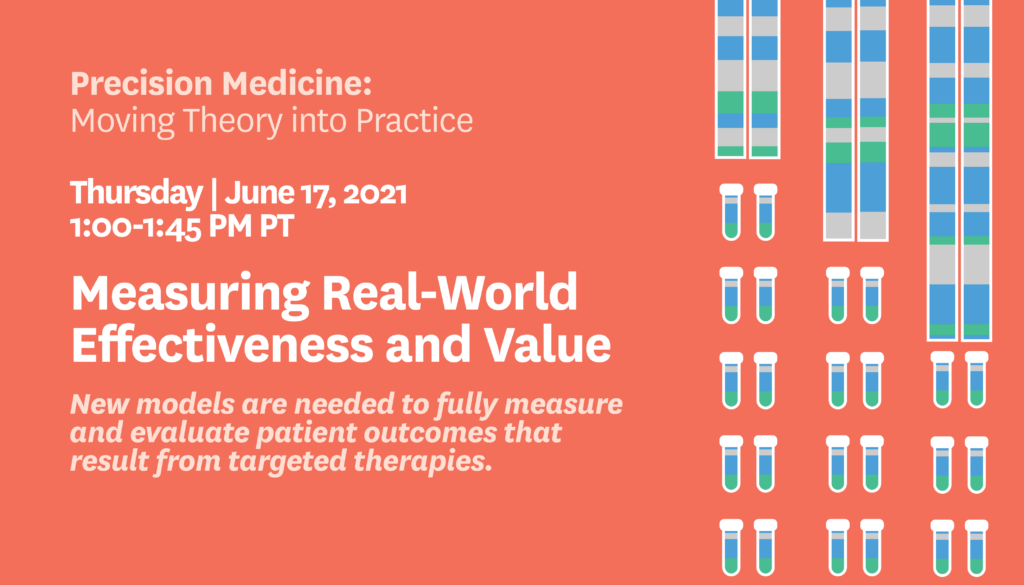
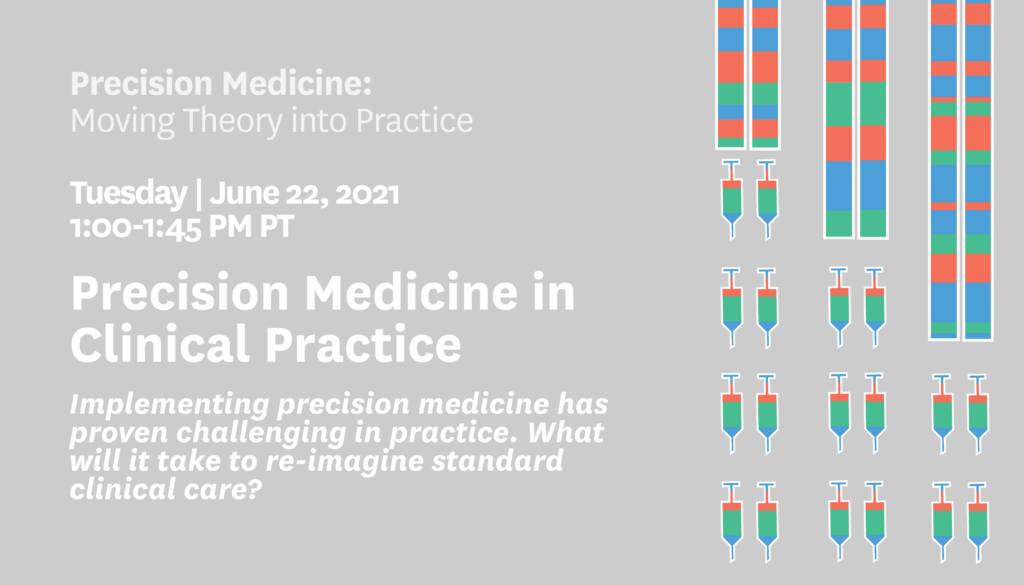
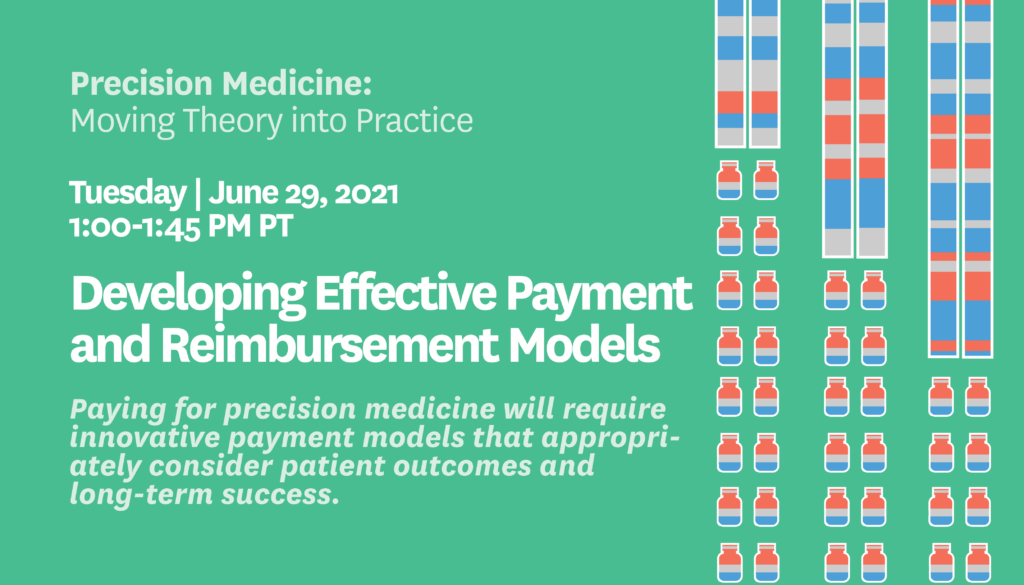
You must be logged in to post a comment.